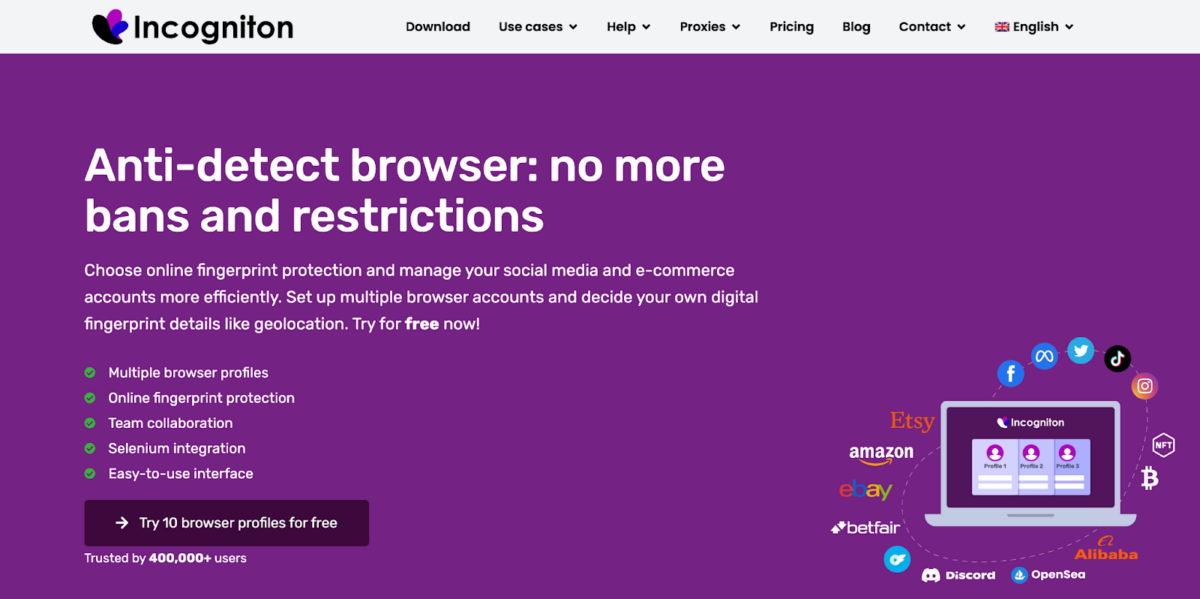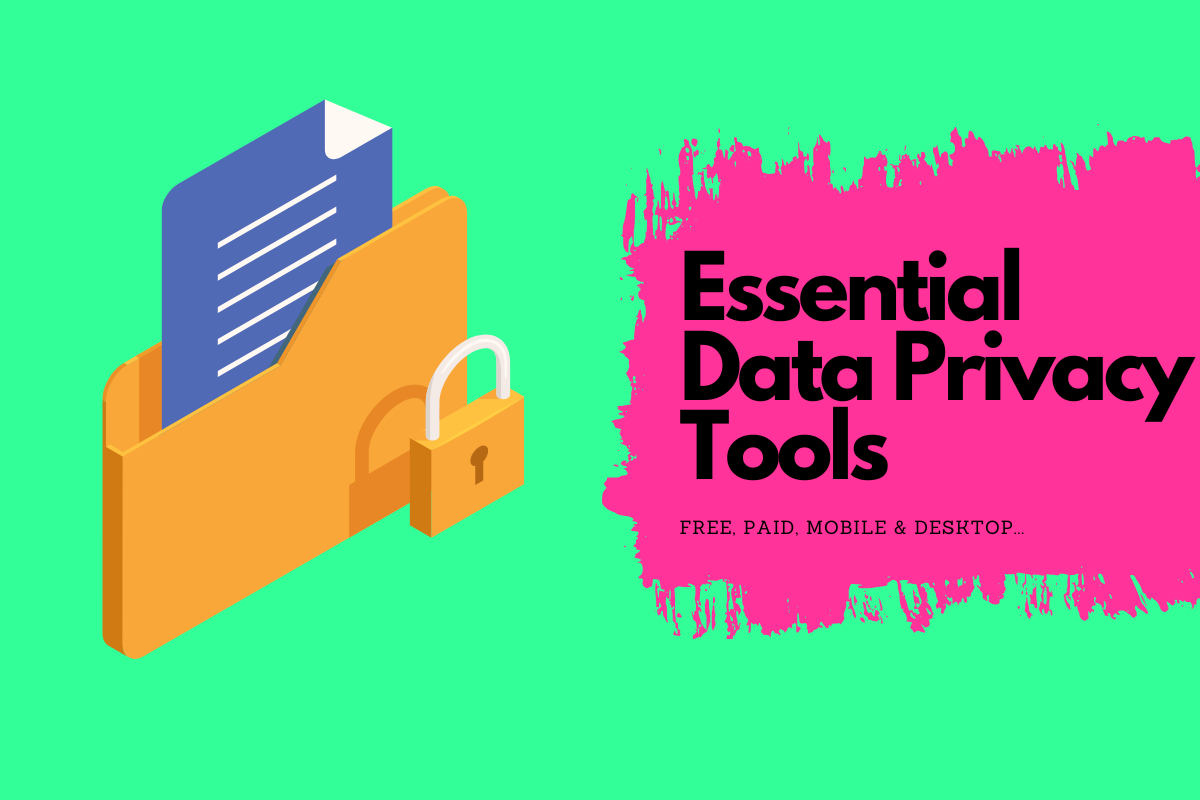Big Tech thrives on your data. For advertising, for targeting, for political ends. Use these free and paid data privacy tools to keep yourself more secure online
Here’s a scary fact: almost 80% of Google’s SERP – search engine results page – is controlled by a handful of media companies.
Google controls 98% of search globally.
Across 10,000 terms where affiliates are ranking, which cover products in every niche you can think of (home, beauty, tech, automotive, cooking, travel, sports, education and many more), these 16 companies ranked on the first page of 8,574 (or 85%) of them.
Detailed
Meta owns WhatsApp, Facebook and Instagram which equates to literally BILLIONS of people flying through its servers every day.
And this data makes these companies billions in dollars of revenue every single quarter, whether through targeted ads or by selling it on to third-parties.
Sounds rather creepy, doesn’t it.
Well, that’s because it is creepy. But there are privacy tools – paid and free – that you can leverage against these practices to ensure your data remains more secure.
Here’s 10 of my current favorites…
10 Data Privacy Tools Everybody Should Use

Privacy-Focused Browsers
- Brave: This browser blocks ads and trackers by default, offers built-in Tor for private browsing, and rewards users with BAT tokens for viewing privacy-respecting ads.
- Firefox: Known for its customization options, Firefox provides a wide range of privacy extensions to enhance your browsing security.
Secure Search Engines
- DuckDuckGo: Unlike mainstream search engines, DuckDuckGo doesn’t track your searches and delivers anonymous results.
- Startpage: This search engine routes your queries through Google’s servers but removes any identifying information, ensuring your privacy.
Password Managers
- LastPass: With LastPass, you can easily create and store strong, unique passwords for all your online accounts.
- Bitwarden: This open-source password manager offers top-notch security features and ensures your passwords remain private.
VPNs (Virtual Private Networks)
- ExpressVPN: Renowned for its speed and reliability, ExpressVPN prioritizes user privacy and security.
- PureVPN: Offering features like double VPN encryption and a strict no-logs policy, PureVPN is a trusted choice for privacy-conscious users.
Email Encryption Services
- ProtonMail: This secure email service provides end-to-end encryption to protect your sensitive communications.
- Tutanota: Another reliable option, Tutanota offers a free plan with limited features and ensures your emails remain private.
Secure Messaging Apps
- Signal: With end-to-end encryption, Signal is a top choice for secure messaging and voice calls.
- Telegram: While not end-to-end encrypted by default, Telegram still provides a high level of security and privacy for your conversations.
Encrypted Cloud Storage
- Sync.com: This secure cloud storage service uses end-to-end encryption to safeguard your files and documents.
- Tresorit: Offering features like file versioning and two-factor authentication, Tresorit ensures your data remains secure in the cloud.
Privacy-Enhancing Browser Extensions
- uBlock Origin: This popular ad blocker not only blocks ads but also protects against trackers and malware.
- Privacy Badger: Developed by the Electronic Frontier Foundation, Privacy Badger learns to block trackers based on your browsing habits.
- HTTPS Everywhere: This browser extension ensures that you’re always using a secure connection (HTTPS) when browsing websites, protecting your data from interception.
Cookie Management Tools
- Cookie AutoDelete: Automatically deletes cookies when you close your browser, minimizing tracking by websites.
- I don’t care about cookies: Adds a simple button to websites, allowing you to reject all cookies with a single click.
What About Anti-Detect Browsers?
Anti-detect browsers are special web browsers that help you stay private and anonymous online. They work by hiding your digital fingerprint, which is like a unique ID made up of information about your device and how you browse the web.
How Do They Work?
- Multiple Identities: Anti-detect browsers let you create separate browsing profiles. Each profile has its own digital fingerprint, so it looks like you’re using different devices and browsers, even on the same computer.
- Spoofing Techniques: These browsers use tricks called spoofing to change information that makes up your fingerprint. This includes things like your operating system, browser version, language settings, and even fonts.
- Data Isolation: Anti-detect browsers keep data like cookies and browsing history separate for each profile. This stops websites from linking your activity across different profiles.
What Are They Used For?
- Managing Social Media: Businesses or marketers might use anti-detect browsers to manage multiple social media accounts without getting flagged for suspicious activity.
- E-commerce Management: They can also be handy for managing seller accounts on e-commerce sites where having multiple accounts might be against the rules.
- Data Collection and Analysis: Some data analysis tasks might involve accessing geo-restricted websites or scraping data. Anti-detect browsers can help bypass these restrictions and keep you anonymous.
Notable Anti-Detect Browsers

Incogniton Anti-Detect Browser
- Website: incogniton.com
- Key Features:
- Multiple profile management
- Browser fingerprinting manipulation
- Proxy integration
- Ideal for: Businesses and users seeking a reliable anti-detect solution
Octo Browser
- Website: octobrowser.net
- Key Features:
- User-friendly interface
- Multiple profile management
- Proxy integration
- Built-in web automation tool
- Ideal for: New users or those requiring a straightforward solution
GoLogin Anti-Detect Browser
- Website: gologin.com
- Key Features:
- Cloud-based operation
- Unlimited profiles
- Disposable email addresses
- Real device emulation
- Ideal for: Businesses and users needing a scalable, feature-rich solution
Doulblelift
- Website: lol.fandom.com/wiki/Doublelift (Note: This link appears to be incorrect as it does not lead to an anti-detect browser but to a page about a person)
- Key Features:
- Multiple profile management
- Proxy integration
- Built-in ad blocker
- Ideal for: Users seeking an easy-to-use, secure, and affordable anti-detect browser
Fingerprint
- Website: seon.io/resources/browser-fingerprinting/
- Key Features:
- Focus on security and privacy
- Multiple profile management
- Proxy integration
- Built-in VPN
- Ideal for: Users prioritizing a secure and private browsing experience


